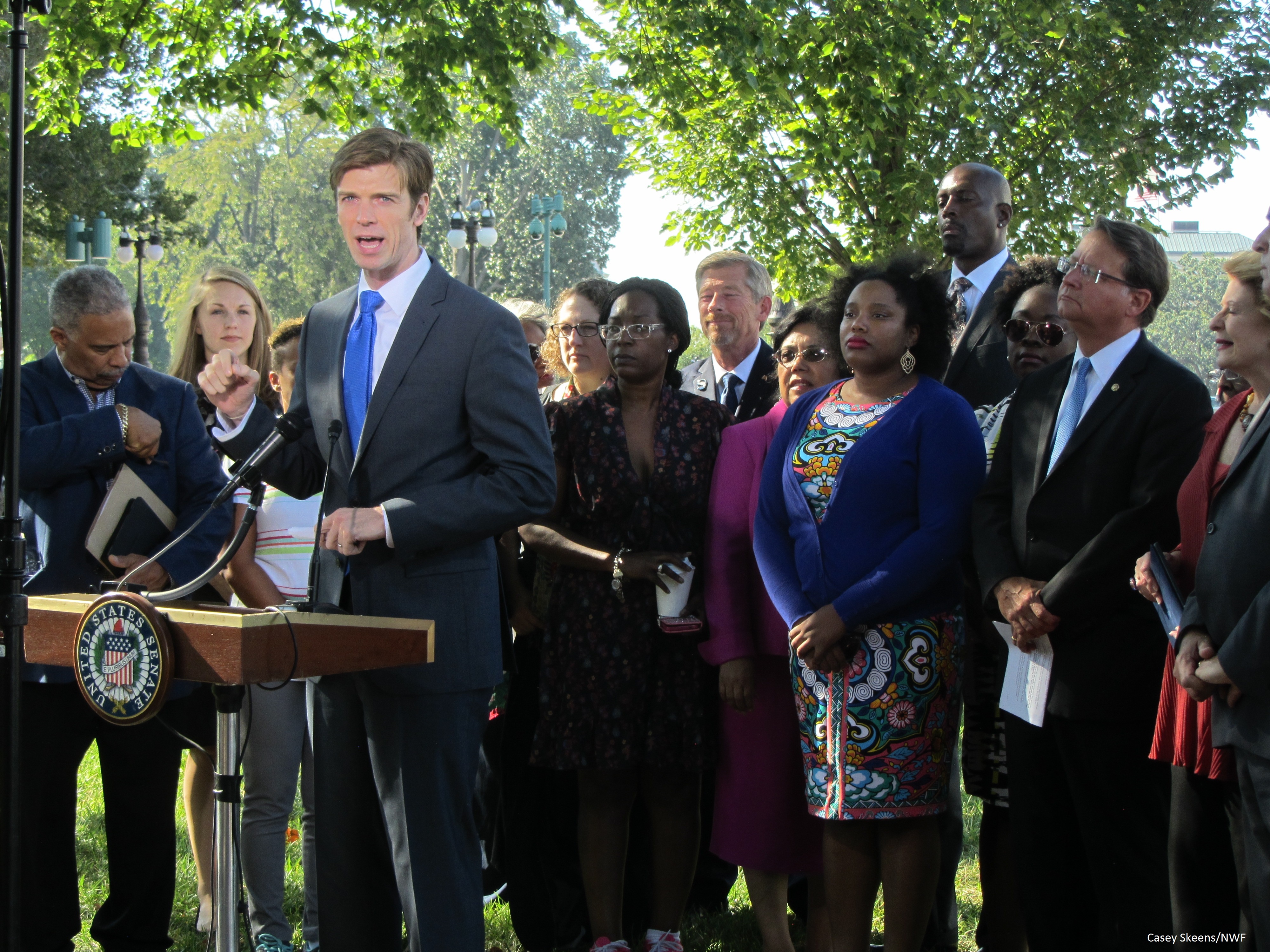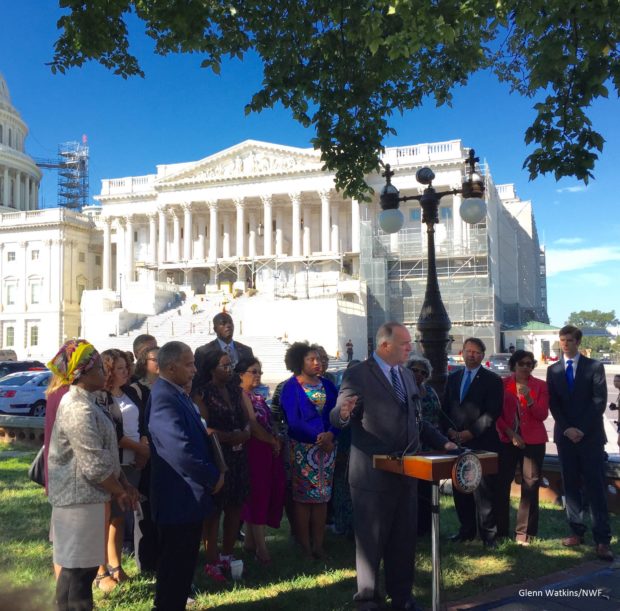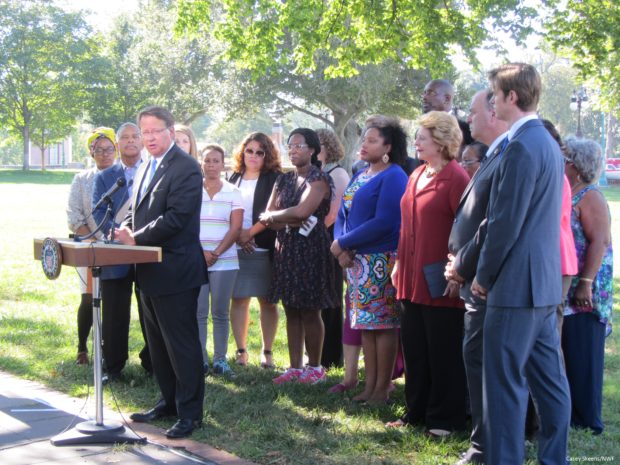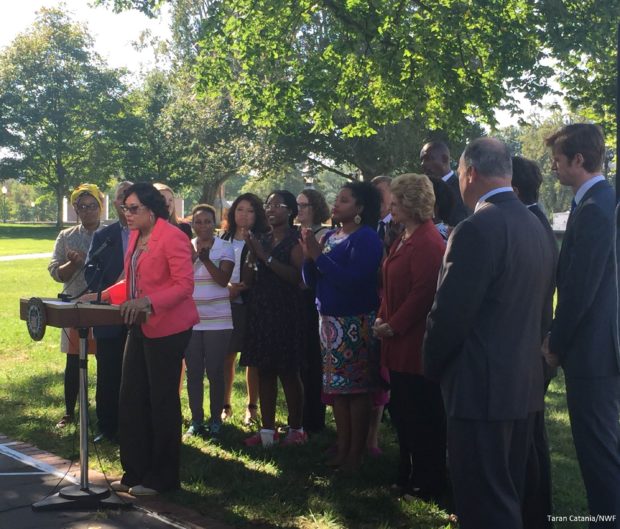We have much more to do and your continued support is needed now more than ever.
Flint Leaders to Congress: We Are Not Disposable People

Anytime you can’t turn on your faucet, it’s a crisis. Anytime people are scared of water, it’s a crisis. Anytime people are questioning their health and what’s happened to them and what’s going to happen to them as a result of the contaminated water from this manmade disaster, it will always be a crisis until we get this issue resolved… We are not disposable people. Mayor Dr. Karen Weaver, Mayor of Flint
Earlier this month, social justice, community, faith, public health, civil rights, and labor leaders from Flint, Michigan united with members of the Michigan Congressional delegation and national conservation groups to push for federal aid to help their families and community recover from a lead contamination disaster that began over two years ago.
Flint community organizer and pastor, Bishop Bernadel Jefferson, has long been raising concerns about the quality of Flint’s drinking water:
They took our voice away. Every time we spoke up and said there was a water problem, nobody heard us, nobody paid any attention. But we kept fighting.
Though the people of Flint keep fighting, they still cannot drink their water. Congressman Kildee has been working to help the community from the beginning. “It shocks the conscience that a year after this story became public, and more than 2 years after this crisis really began, the people of Flint still can’t drink their water.”

The Senate recently passed S. 2848, the Water Resources Development Act of 2016, which contains important provisions to provide $100 million in aid to Flint to help the city upgrade their infrastructure and improve drinking water quality across the country. This is just a first step – Senator Stabenow reiterated that “We will not give up on the people of Flint until every man, every woman, every child in the city of Flint has the confidence that the water that comes out of their faucet is safe. That should be a basic American right.”

Aging infrastructure and mismanagement created a crisis in Flint, but the problem of aging infrastructure is “a ticking time bomb in communities all across the United States of America.” The only way to help prevent future Flints is by investing in and protecting our nation’s water quality and infrastructure. Mayor Karen Weaver urged the rest of the country to look to Flint as a warning:
“While we are saddened that we are the example, we hope other cities across America are paying attention and using us as a voice and a platform to address the issues of infrastructure, the need to invest and maintain infrastructure, the need for higher water quality standards… because what happened in Flint should never happen to any other community.”

Today, Congress returns for one last week before recess. The top priority is passing a spending bill called a Continuing Resolution. This has to happen by October 1st in order to avoid a government shutdown. The current Continuing Resolution offered by Senate Majority Leader Mitch McConnell contains much-needed emergency relief to help Louisiana recover from the catastrophic flooding in August – but it doesn’t provide long-overdue relief for Flint. Congress must pass a bill that provides relief to both communities.
Also on tap for this week is the House version of the water resources bill, which unfortunately does not include aid for Flint. Since the Senate version does, moving forward with a water resources bill gives us the opportunity to keep pressing for Flint aid, even if it’s not included in the spending bill.
Whatever the vehicle, Flint aid needs to move and move quickly. As Congress considers these legislative options, Gina Luster with Flint Rising urged them to think of the 12,000 children who may have been exposed to lead by drinking this poisoned water. “Our babies are so important. This is a generation that will be lost. Please don’t forget about us.”
Let’s not forget about the people of Flint. Tell Congress to immediately move forward with effective relief efforts to help Flint recover and to protect our nation’s water quality.
Take Action





















